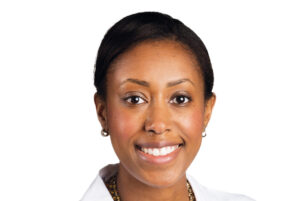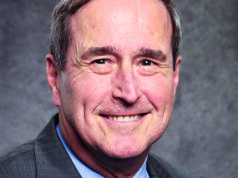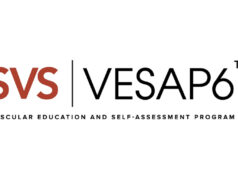
On Friday, June 21, the Society for Vascular Surgery (SVS) Young Surgeons Section (YSS) held their session at the 2024 Vascular Annual Meeting (VAM). The session began with Chelsea Dorsey, MD, highlighting the YSS’ achievements from the last year including a publication in the Journal of Vascular Surgery-Vascular Insights, and the announcement of a new traveling professorship program.
“I am really excited about the things that we have done, but also for the future,” said Dorsey. Dorsey served as the section’s chair from its inception in 2021 until recently when she rotated off the Steering Committee; Edward Gifford, MD, will now serve as the chair.
Once the opening remarks were made, the education portion of the section kicked off and shifted focus to early-career errors. The session had six speakers who covered their personal errors, three being clinical and the other three being professional scenarios that the speakers encountered.
Megan Parrott, MD, served as the first speaker in the session and went into details on a patient’s case, with her talk on, “What to do when even our best-laid plans go sideways.”
Ravi Ambani, MD, followed Parrott in the speaking order and told the audience about the things he missed while considering his first job post-training, the missteps taken when moving on to his next role, and gave words of wisdom for building a network of trustworthy people to lean on when making those types of career decisions.
Kyongjune Lee, MD, took the podium next to discuss a patient case where something was missed on imaging, but pointed out by an outside surgeon before an operation took place. Lee shared his insight into the importance of listening to outside opinions and always giving them consideration, as well as soliciting feedback on treatment plans to ensure every piece of the puzzle is considered before moving forward. Lee also focused on the significance of having transparency with patients to help build trust.
“I loved how both the speakers and audience members were open to having a real conversation about some difficult clinical and career scenarios that many of us have or will face as practicing vascular surgeons,” said Dorsey. “It felt like folks latched onto the ‘brave space’ phenomenon described during VAM’s inaugural keynote address. It was fun to be a part of it and I hope we can continue that trend in years to come.”
Elizabeth George, MD, continued the session by discussing managing pregnancy and returning to work early on in a vascular surgery career. George walked the audience through her three pregnancies and highlighted the stark differences that each one had when it came to her career and her personal life, ultimately stressing that being a surgeon and a great mother are not mutually exclusive. George brought forth the idea for the development of guidelines for surgeons who are expecting regarding radiation exposure.
Behzad S. Farivar, MD, came forward to discuss a time when he “zigged when he should have zagged” that focused on a patient case where an endovascular approach was originally taken. Postoperative imaging showed three different issues, but the patient was okay. Farivar spent much of his time discussing treatment options with the audience and asking questions to make the audience critically consider next steps. His conclusion encouraged audience members to acknowledge that complications are a part of surgical practice, to learn from every experience, seek assistance and collaboration, understand the strengths and weaknesses of one’s institution and to always have a contingency plan. To reduce errors, Farivar encouraged adopting a holistic view, working toward continuous improvement while encouraging ongoing learning, and to adopt lean surgical procedures.
The final talk was given by Olamide Alabi, MD, and focused on the importance of finding the right mentor, and how to manage the relationship so it benefits the mentee. Alabi discussed the ideal mentor/mentee relationship, which consists of open dialogue that bring lead to critical thinking and planning, mutual participation and more. Alabi gave personal examples about mentor/mentee relationships that did not benefit her in the way that she needed, and how she managed the relationship to get more out of them.
YSS leadership designed the session with the intention of creating a space for young surgeons to feel comfortable discussing career mistakes. “We’ve gotten great feedback from attendees and presenters alike. The session seemed to strike the right note for where we want to see the section go in the future,” said Gifford.











